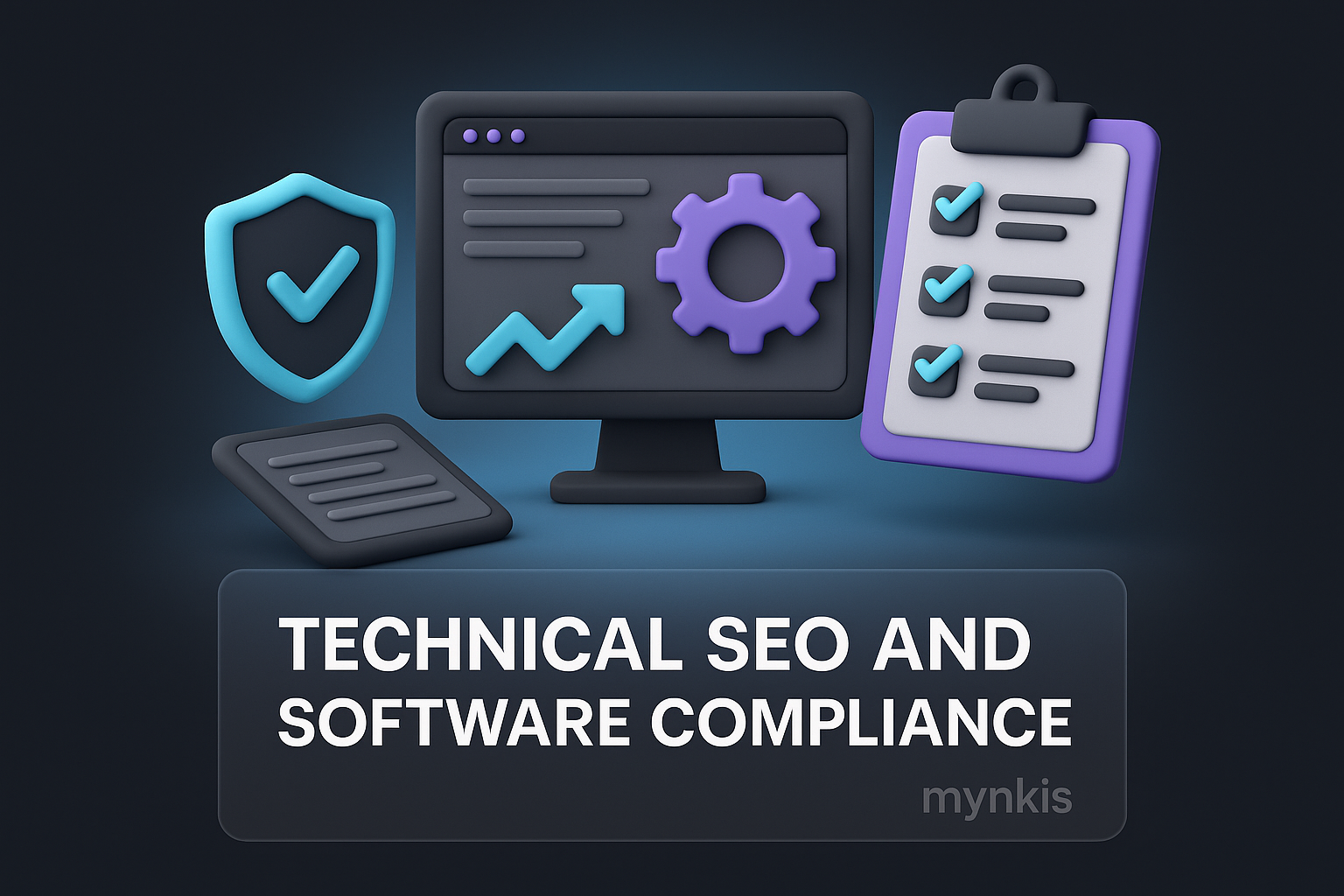Schedule a Demo
In my work with clinics and hospitals, I've witnessed how critical it is to ensure that software, particularly for patient portals and data management, not only meets compliance standards but also excels in technical SEO. You see, the compliance aspect ensures that sensitive patient data is protected and that your organization adheres to laws like HIPAA. Meanwhile, technical SEO drives your site's visibility, ensuring that your secure, compliant services are actually seen by those who need them.
Balancing SEO with compliance can feel like walking a tightrope. On one hand, you want your site to rank high on search engines to reach more potential clients. On the other, you've got to make sure everything is bulletproof from a compliance standpoint. I've learned that investing time in optimizing the technical aspects of your website—like site speed, mobile responsiveness, and structured data—can significantly enhance your SEO without compromising on security.
Speed matters. In the world of healthcare, where every second counts, site speed is more than just an SEO metric—it's a reflection of your care level for patients. A fast-loading site not only improves your Google rankings but also ensures that users, whether they're prospective patients or healthcare providers, aren't left waiting. From my experience, using content delivery networks (CDNs) and optimizing images can work wonders for reducing load times.
SSL certificates are the cornerstone of a secure website. Not only do they encrypt data between users and your site—keeping patient information confidential—but they also signal to search engines that you're a trustworthy entity. Based on my observations, sites with SSL tend to rank higher, making them a win-win for both SEO and compliance.
With the majority of searches now performed on mobile devices, ensuring your site is fully responsive is non-negotiable. A mobile-friendly design doesn't just improve user experience; it directly affects your Google rankings due to mobile-first indexing. In our digital transformation era, optimizing your site for all screen sizes can set you apart from competitors who may not be as vigilant about this aspect.
Structured data might not be the sexiest part of SEO, but its impact is undeniable. By providing search engines with explicit clues about the meaning of your content, you help them understand and index your site more effectively. For example, using schema markup to describe your services or products can enhance your search results with rich snippets, thus increasing your click-through rates. In my work, implementing structured data has consistently led to better visibility in search engine results.
Creating content that ranks well on search engines while adhering to compliance standards requires a strategic approach. For instance, blog posts or service descriptions about patient portal functionalities must be clear, SEO-friendly, and, most importantly, compliant. By regularly updating your content to reflect the latest compliance guidelines and incorporating keywords naturally, you can enhance your SEO without risking non-compliance.
User experience (UX) bridges the gap between SEO and compliance. A site designed with user-friendliness in mind helps you meet accessibility compliance standards while also reducing bounce rates—a critical factor for SEO. From my experience, offering clear, easy-to-navigate paths to vital information like patient privacy policies not only satisfies compliance needs but also keeps users engaged longer on your site.
SEO and compliance aren't set-and-forget missions; they require ongoing attention. Regular audits allow you to catch and fix issues before they become major problems. I recommend conducting SEO and compliance audits at least quarterly to monitor your site's health, keep up with evolving standards, and maintain top performance in search rankings.
Backlinks are a powerful yet often overlooked element in SEO, particularly in the healthcare sector where trust and authority are paramount. By earning high-quality backlinks from reputable healthcare and technology websites, you enhance your site's credibility in the eyes of search engines. I've seen facilities dramatically improve their SEO by collaborating with academic institutions or industry experts, sharing research, and earning those valuable backlinks.
Privacy doesn't just protect your users; it's also an SEO consideration. Search engines like Google increasingly prioritize privacy in their algorithms. For clinics and hospitals, this means ensuring that patient information remains confidential and implementing privacy-friendly policies across your site. In my time working with healthcare providers, I've found that a clear commitment to privacy can boost not only user trust but also search engine rankings.
The world of SEO is dynamic, driven by frequent algorithm updates from search engines. Staying updated with these changes can help you adapt your SEO strategies while ensuring compliance remains intact. For example, Google's focus on E-A-T (Expertise, Authoritativeness, and Trustworthiness) means that healthcare sites with well-established credibility can rank better. Incorporating backlinks from respected health organizations or research institutes underscores your authority, helping you stay ahead in both compliance and SEO.
Where SEO and user security intersect, both realms benefit. By focusing on technical SEO aspects like site speed, security, and mobile optimization, you enhance not only your site's search visibility but also its compliance. It's a holistic approach that serves the dual purpose of catering to Google's algorithms while safeguarding user data. In my experience, ensuring your site's backend is as robust and secure as the front end can lead to a significant improvement in both SEO metrics and compliance standards.
